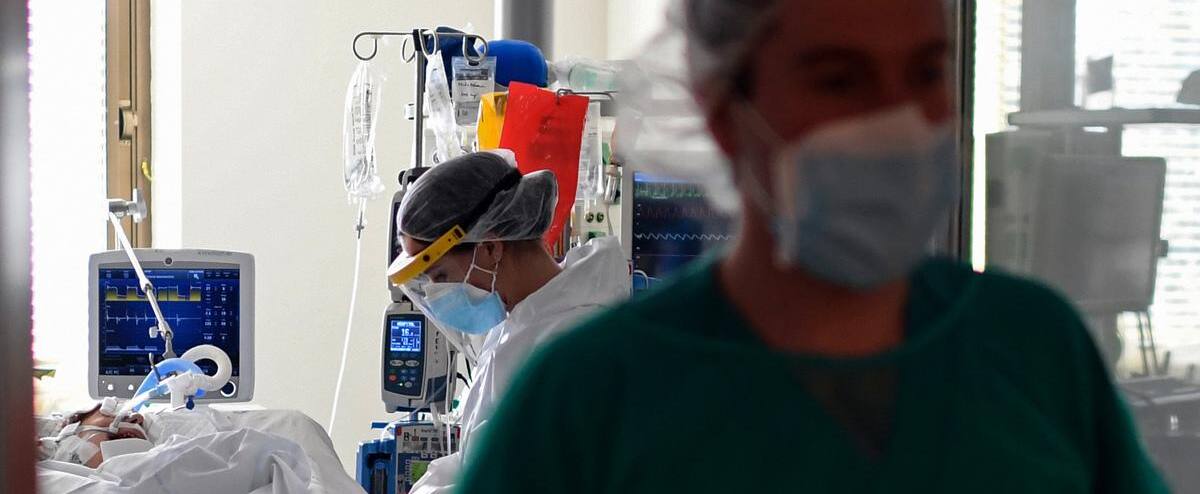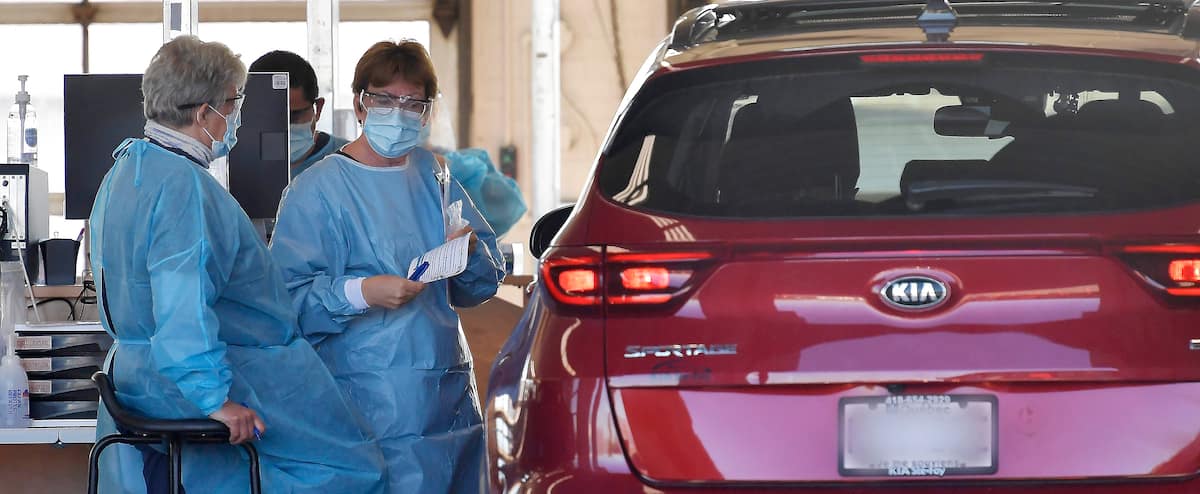Exhaustion, discouraging working conditions and departures in Luxembourg where wages are multiplied by two or three: more than the other French border departments, Moselle is the victim of a hemorrhage of its caregivers as the second wave of COVID-19 looms .
To date, there is still no danger in the remainder. Hospitalizations are on the rise in the department classified since Thursday in the red zone. But there were only twelve COVID-19 patients in intensive care on Friday, far from the 200 in the first wave.
As of now, however, the medical world is worried about the effects of the exodus of caregivers.
A new hospital establishment in Esch-sur-Alzette, a Luxembourg town bordering the Moselle, “requires great staffing needs” and offers remuneration “from simple to double or even triple”, notes Marie-Odile Saillard, director of the Metz / Thionville CHR hospital (2,033 beds, 6,500 employees, 700 doctors).
“Luxembourg debauchery in a very savage way”, especially nurses, adds Régis Moreau, director of Uneos (private hospitals in Metz, 1,085 beds, 2,000 employees, 150 doctors).
“A nurse barely trained in chemotherapy has just left for Luxembourg with a three-month contract for Covid samples, at 5,000 euros per month. Another left for 6,000 euros, ”reports Clarisse Mattel, general secretary of the CGT health union of the CHR.
The trade unionist denounces “the deep unease of caregivers” and “the lack of attractiveness of the profession” in France, pointing to insufficient remuneration. And it is not the anticipation of a few months of the general increase of 90 euros in the salaries of hospital staff (excluding doctors) that will change the situation, she emphasizes.
“Alarming” situation
The departures of around twenty nurses in Luxembourg who are added to those who have changed direction have already forced Uneos to close beds. Ditto for the CHR where, from a source close to the case, there are “about fifteen resuscitators and as many anesthesiologists and nurses” who have left under other skies.
In the only emergencies of the CHR, the boss of the service and president of Smur de France, François Braun, notes the departures of four practitioners: two to Luxembourg, one in Belgium and one in Switzerland. He fears other “pearly” departures and notes that the bleeding is of the same order among nurses.
According to Dr Braun, the situation is “alarming” even though the region is still relatively untouched by the Covid, with already “a saturation” of services due to “catching up on care not provided” in the spring and “overactivity traditional fall ”.
In the perspective of a new outbreak of the Covid epidemic, the Regional Health Agency (ARS) of the Grand Est has identified “102 beds available in intensive care” for the department. “There is no reserve”, warned the prefect Laurent Touvet, calling on the Mosellans to respect barrier gestures, because this time, he emphasizes, there will be “no reinforcements from outside no transfers ”.
” Empty shell “
As for the newly trained medical staff, they are struggling to fill the gaps. One third of the 350 nurses who graduate from the three Moselle schools each year immediately leave for Luxembourg or elsewhere abroad. “I do not receive any CV”, laments the director of Uneos, looking for “sixty nurses on CDI”.
Here, as at the CHR, we agree on the need for a “convention between France and Luxembourg”. “France trains, and even well. However, there is no compensation ”, insists Ms. Saillard, even if we sometimes see“ caregivers coming back ”, because working conditions and social protection are not always idyllic abroad.
As for the Ségur de la santé – a series of meetings between the government and the social partners – it is criticized by Ms. Seillard, the CGT or even emergency doctors. “An empty shell”, regrets Dr Braun, assuring that some colleagues have almost come to regret the first phase of the Covid, during which “everything was fluid”. “There is again abuse,” he says indignantly.
For him, it would require an efficient organization, that is to say a place where “everyone does their job”. “The nurse must no longer do the work of the nursing assistant, the doctor that of the stretcher bearer … This is a bit like the problem of the public hospital”, he summarizes.
 Canada Live NEWS – 24/7 Breaking Headlines & Updates Canada Live News is one of the largest news curating sites across Canada which is made exclusively for Canadian people.
Canada Live NEWS – 24/7 Breaking Headlines & Updates Canada Live News is one of the largest news curating sites across Canada which is made exclusively for Canadian people.
